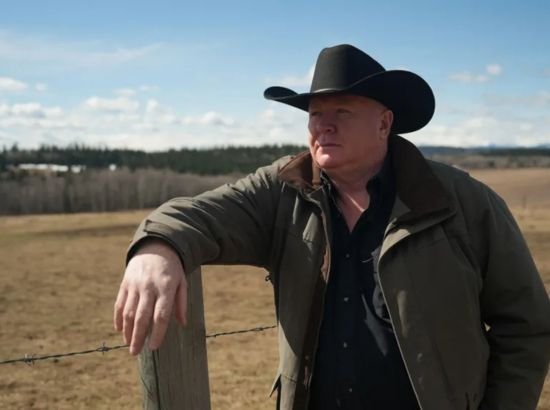
As Canada’s election looms, another challenge simmers beneath the surface — an increasing number of Albertans are questioning whether their future lies within the country at all. Calls for independence or even closer ties to the U.S. are growing louder across the province, fueled by long-standing frustrations with Ottawa.
In a packed hall in Lethbridge, residents gathered to voice their views on Alberta’s future. When asked about seeking independence, about half the audience raised their hands, while many others showed openness to joining the United States.
Among the voices leading the movement is Jeffrey Rath, a Calgary lawyer and rancher, who believes Alberta’s values align more with American states like Montana and Texas than with Eastern Canada. He envisions an Alberta that could either stand alone or forge stronger ties with the U.S., reflecting a deep cultural and political connection.
Recent comments from former U.S. President Donald Trump suggesting Canada could become America’s 51st state have only intensified Alberta’s separatist conversation. Ironically, Trump’s remarks have boosted Liberal support in eastern provinces, further widening the national divide.
Longstanding grievances — from perceived underrepresentation to environmental policies seen as hostile to Alberta’s oil-driven economy — have added fuel to the separatist fire.
Alberta’s resentment grew under former Prime Minister Justin Trudeau’s government, which introduced environmental regulations that many in the province viewed as detrimental to their economic prosperity. Now, with Mark Carney leading the Liberals and expected to perform well in Ontario and Quebec, Albertans fear further marginalization.
Some residents, like Judy Schneider, openly state they would support separation if given the chance, doubting Carney’s understanding of Alberta’s realities despite his Edmonton upbringing.
While separatist enthusiasm is vocal, it’s not yet a majority view. Surveys show only one in four Albertans would currently vote to leave Canada, though many Canadians believe the rising frustration should not be ignored.
Political observers warn that whoever wins the upcoming election will face a serious challenge in addressing regional divides, especially between the West and the more populous East.
Alberta Premier Danielle Smith has taken a more assertive stance, warning of a “national unity crisis” if federal policies don’t shift to favor Alberta’s economic interests. Though she has distanced herself from full-blown separatism, critics argue her hardline position is escalating tensions.
Smith’s independent trade talks with the U.S. and her visit to Donald Trump in Florida signal a willingness to carve out a more distinct path for Alberta.
Even within the independence movement, opinions differ. Some activists, like Lorna Guitton, see a referendum as a way to force Ottawa to renegotiate Alberta’s role — not necessarily to break away completely. Others, like Jeffrey Rath, are preparing outreach efforts toward U.S. leaders to explore deeper American ties.
Despite the noise, many Albertans advocate for healing national divisions rather than widening them. Some believe that Alberta’s concerns must be addressed through cooperation, not separation.
As political winds shift, Alberta’s future within Canada — or potentially beyond it — remains an open question.